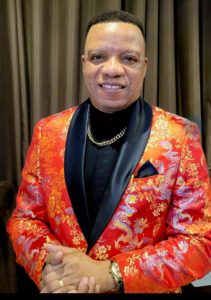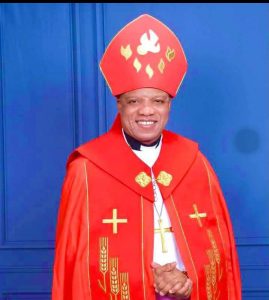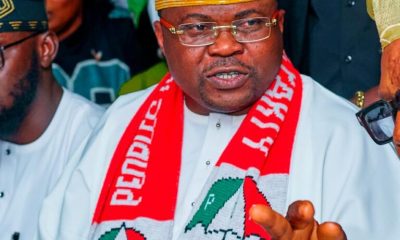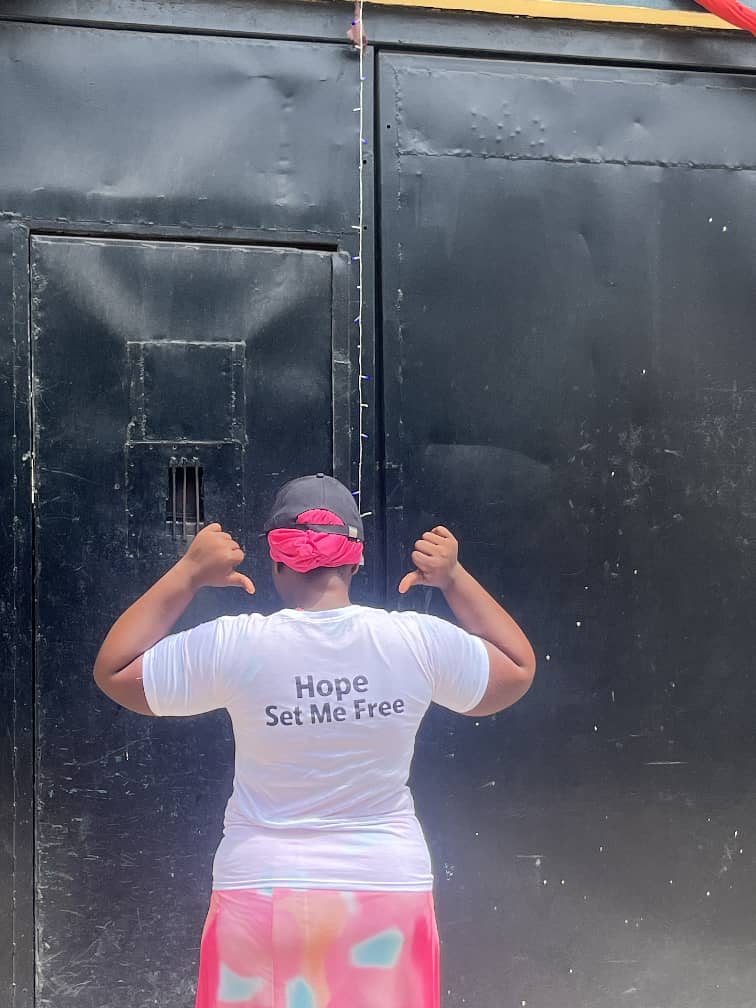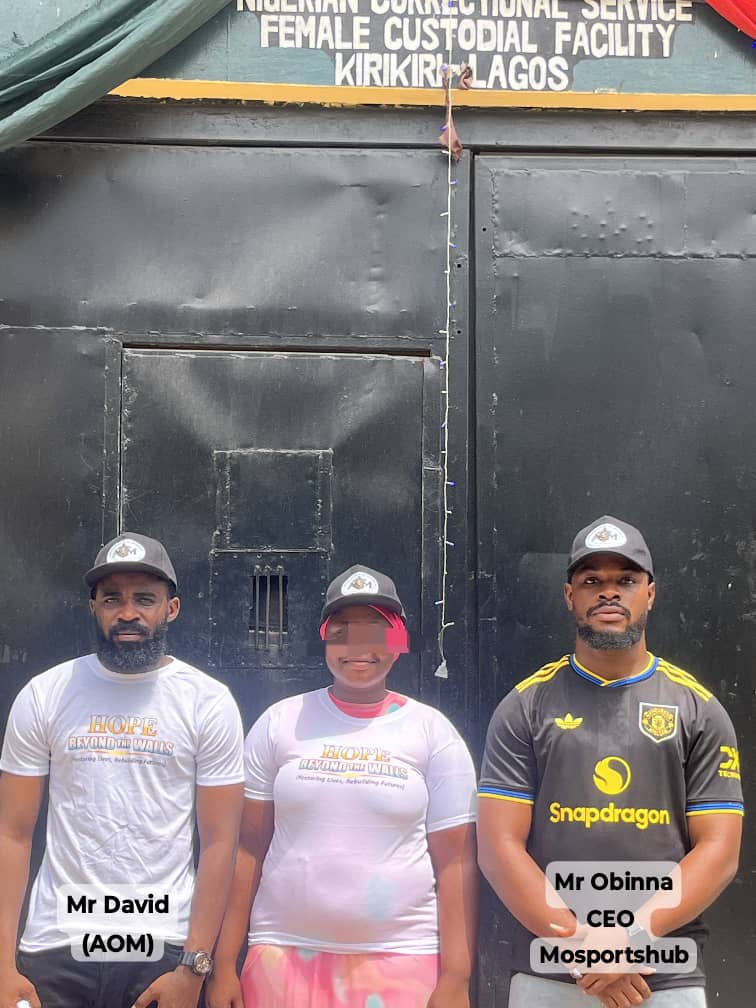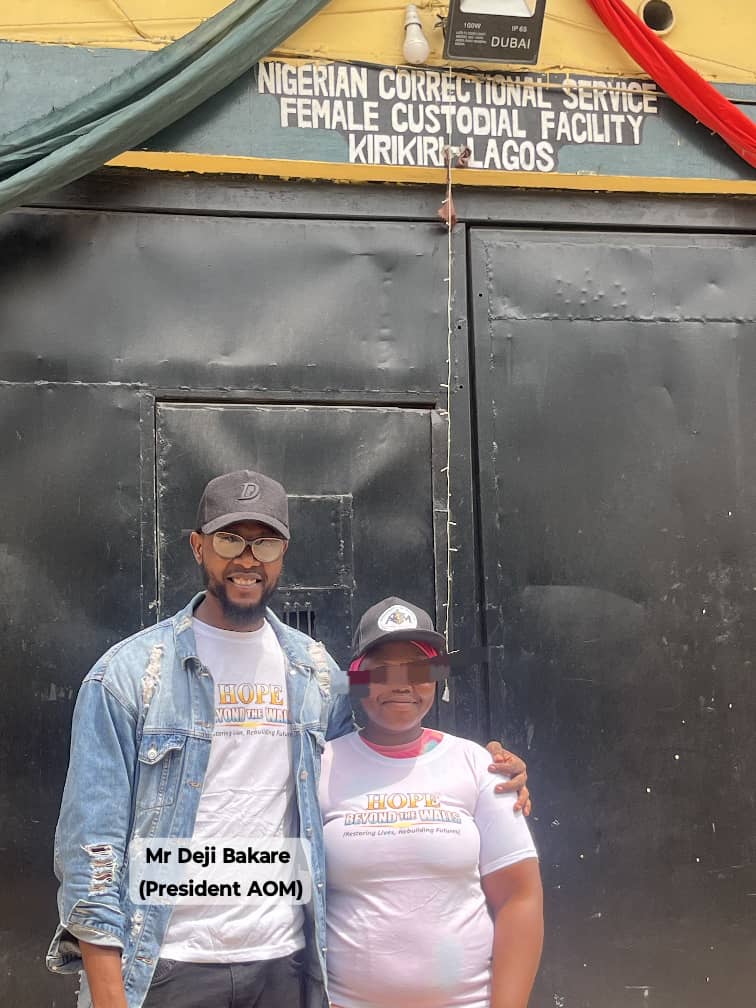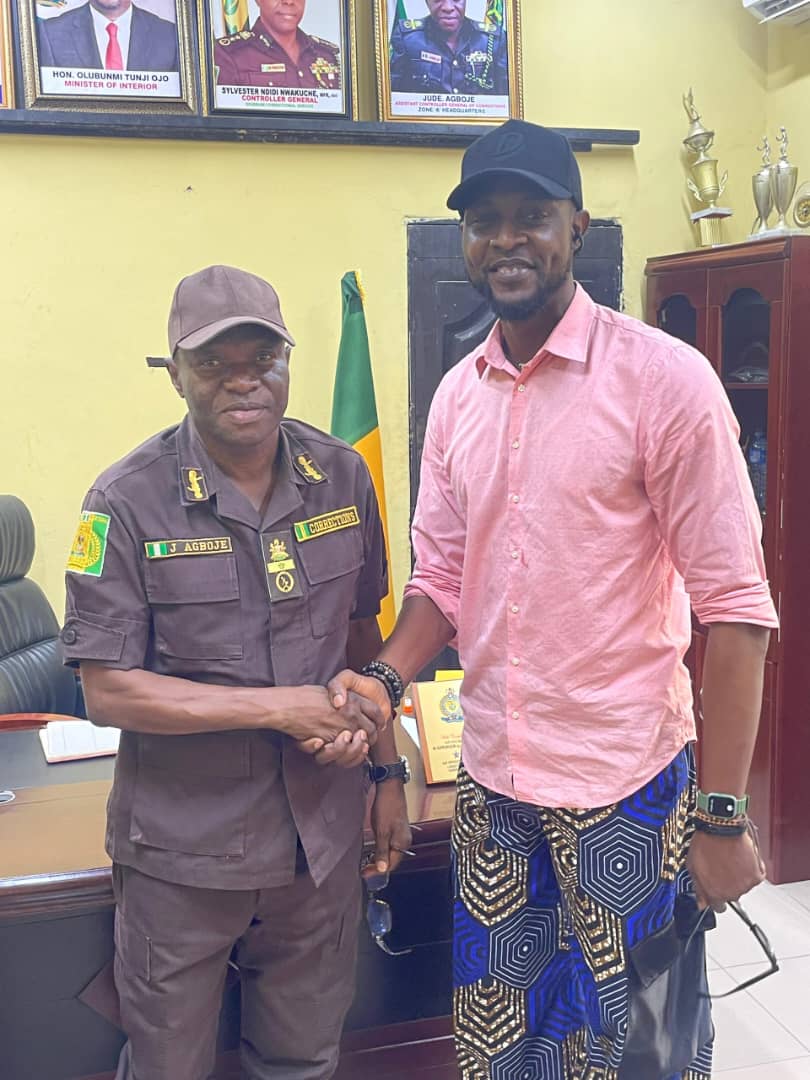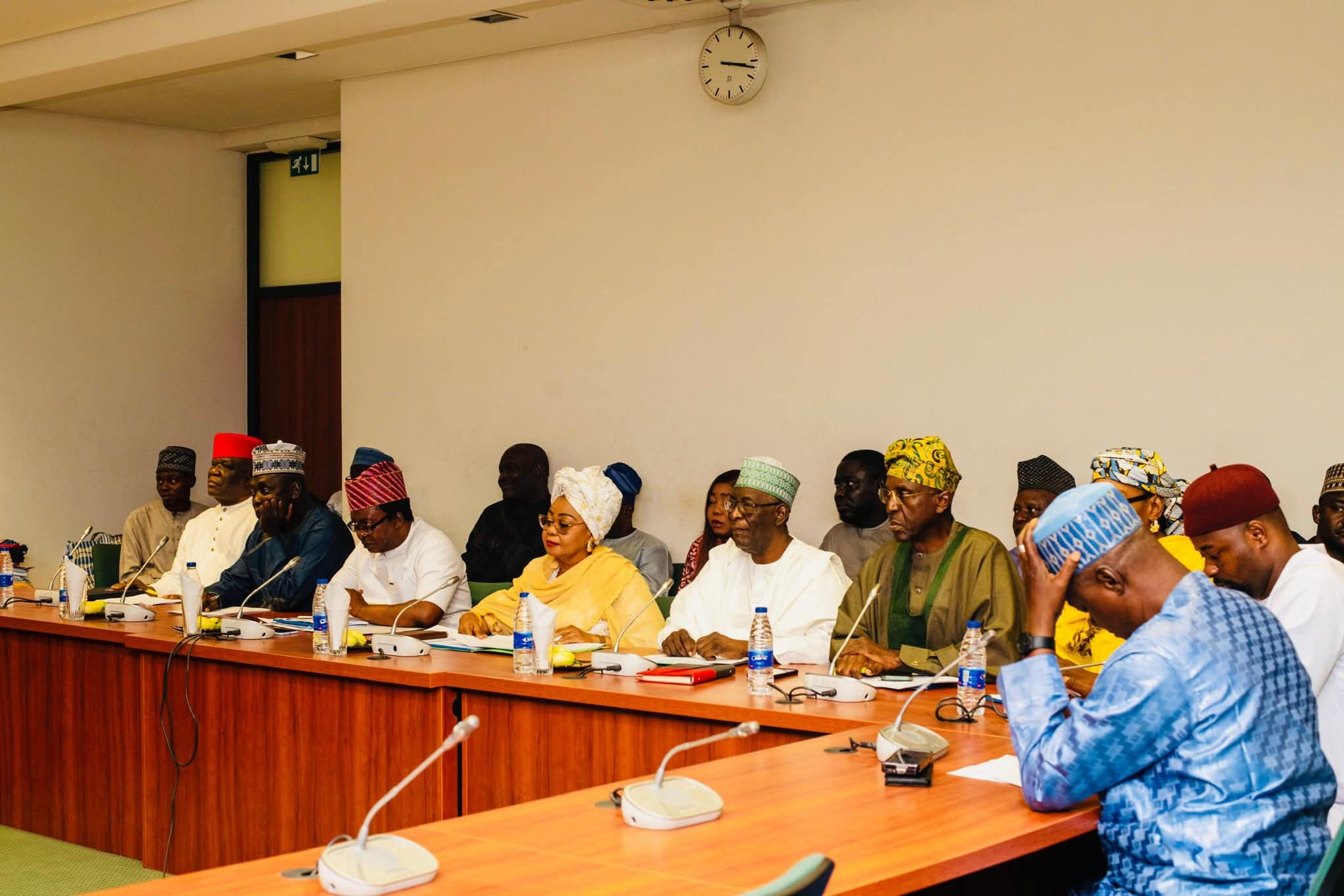society
The Chronicles of Bishop Paul N. Vincent: Unveiling a spectacular voyage from belief to Empowerment- An Epic Narrative of Endurance and Dedication*

*The Chronicles of Bishop Paul N. Vincent: Unveiling a spectacular voyage from belief to Empowerment- An Epic Narrative of Endurance and Dedication*
In an exclusive interview conducted by Emmanuel Clement, we embark on an illuminating exploration of the remarkable life and visionary leadership of Bishop Paul N. Vincent.
As the driving force behind Persistence Works TV Network (PWTN) and Vincent Paul Ministries Int’l, Bishop Vincent’s journey from personal transformation to global impact is an inspiring testament to faith, resilience, and unwavering commitment to service.
*Can we have meet you sir?*
I am Bishop Paul N. Vincent, a leader with a diverse portfolio including roles as President/CEO of Persistence Works TV Network (PWTN), Publisher of Persistence Works Magazine, and head of Vincent Paul Ministries Int’l. Based in El Paso, Texas, my journey encompasses various spheres of influence, from media to ministry, all fueled by a profound commitment to service.
*How did your journey of faith begin, and what prompted your salvation?*
My salvation journey was catalyzed by a family tragedy in 1982, ultimately leading me to embrace Christ in 1985 during a powerful revival service. This transformative encounter set the course for my lifelong commitment to faith and service.
*Since you gave your life to Christ, have you ever thought of backsliding from the faith?*
No I haven’t. Although many people within my extended family at that time didn’t think I would go all the way. They thought I would soon backslide since I was so young (I was 11 years old when I started attending the church, but was 13 when I made a firm & final decision to give my life and to follow Christ all the way). So they felt by the time the “pleasures of life” begin presenting themselves to me, that I’d backslide. But God’s Faithfulness has proved them all wrong! I’m still here by the Grace of God, still following Christ after almost 40 years now! Praise God!
*Before embarking on ministry, what endeavors did you pursue?*
Prior to diving into full-time ministry, I embarked on a journey of learning and service. From pioneering ministry works in Nigeria to serving as an Army Chaplain in the U.S., my path has been marked by a pursuit of knowledge, leadership, and social impact.
*What is the overarching vision and mandate of your ministry?*
The Vision and mandate of our ministry are:
*To liberate those oppressed by the devil and draw such into the Kingdom Of God by the preaching of the Gospel.
*To Minister healing to the sick: physically, emotionally & spiritually.
*To effectively communicate Christ to our society and the world.
*To preach and teach the word in order to build, develop & mature the Body Of Christ.
*Maximizing the media to propagate the Gospel through: Publications, Television, Social Media, Crusades, Conferences & Charity.
*Have you ever experienced regret as a minister of God?*
Well, we all are constantly growing and learning. The most important thing in life is not that you made mistakes, it’s that you’re able to quickly learn from it, grow and move on beyond it. So yes there were few choices or actions that one might have wished could have been done differently or so, but it’s all part of the learning curves in life. But what I don’t ever regret at any time is: Giving my life to Christ at an early age; answering the Call of God at an early age; getting married to my wife; serving in the US military and other such key choices in life; I don’t regret any of them.
*How do you handle critics?*
If they are constructive criticism, people that want you to do well or better and offer criticism in a way to help you do better and be better: I thank them, accept & evaluate the criticism; If I need to do something different or change something or so, wisdom demands that you do whatever that will help you become a better version of your tomorrow than you were today. But, if they are destructive criticism, people who just want to tear you down and don’t care about you or what you are doing: then I just ignore them, keep doing what am doing. But in some cases, your critics today may become your cheerleaders and fans tomorrow, so I try not to take most criticism so personal. Of course everyone won’t like you, love you or appreciate what you’re doing. So be at peace with that fact of life too!
*Should Christians actively engage in politics?*
Absolutely. Christians have a vital role to play in shaping the political landscape, bringing principles of integrity, justice, and compassion to governance. As stewards of society, our engagement in politics is both a responsibility and an opportunity to effect positive change.
*What’s your perspective on the current political climate?*
The current political climate underscores the urgency of our times, with global upheavals and conflicts signaling the need for steadfast leadership and spiritual discernment. As we navigate these turbulent waters, it’s imperative to uphold values of righteousness and perseverance.
*What do you think is the solution to the ravaging insecurities in the country?*
Bottom Line is that Nigeria needs to be restructured, period! All the issues the nation is facing or dealing with, (more especially insecurity) are only the symptoms, the root cause of Nigeria’s problem is foundational and structural. When you keep forcing strange bed mates to live together and they don’t want to, you’ve set the stage for whatever you get. If you are sick and you go to the hospital, a good doctor won’t just treat your symptoms, they’ll try to get to the root of the problem why you are having those symptoms, which is why they ask you to go do scan, MRI, various tests, etc; so that they can identify the root cause of the sickness and treat it from there, because if you get the root cause taken care of, the symptoms will easily be treated or taken care of. So most of what Nigeria’s political leadership have been doing over the past 63 years plus, since her independence, is treating the symptoms and hoping to cure the sickness. No it doesn’t work that way. To treat the root cause of Nigeria’s problem will require restructuring the country. Again, due to the failed structure, there are people who are benefiting from it the way it is now (even with all the insecurity) that will want things to remain the way they are now, as long as they are benefiting, they don’t care. Which is also part of the problem, people or politicians want what benefits them & not what’s best for everyone.
So when you restructure, then every region can develop at their pace, maximize their full potential, including potential for economic growth and industrialization, solve their problems in the context of what works for them and most of the criminal elements will either change and be engaged in something more productive or will have to face the full weight of the laws. Again even in being able to restructure, it’ll take a leadership that is visionary and selfless. And the question is, does Nigeria have such leaders now, I doubt it! But I pray am proven wrong!
*Where do you envision your ministry in the next 5 years?*
Looking ahead, I envision our ministry expanding its reach and impact across diverse platforms. From a thriving TV network and publication to impactful community initiatives, our goal is to touch lives and transform communities on a global scale.
*What message do you have for those who thought there is no hope from political leaders in the country?*
Actually, is there any hope from political leaders in the country? I doubt it! But in any case, I pray that the political leaders will at least for once, try to prove people wrong by doing the right things & putting policies in place that’ll benefit the people and that’ll move the nation forward. That they’ll serve selflessly and not be about themselves. And I pray that God will one day bless this nation with the right crop of selfless leaders who will be willing to go to any lengths to serve their people and improve their quality of life.
*What has life taught you over the years?*
Life has thought me that: PERSISTENCE WORKS! Whatever you do in life; Don’t Give Up! Don’t throw in the towel because IF you keep Persisting in the face of adversity, danger, failure, set back, criticism or persecution, soon your persistence will work for you, because I am a proof that PERSISTENCE WORKS!
Another thing that life taught me was when I completely went blind in my left eye for almost a year due to cataract. But I eventually had surgery to remove the cataract and regained my sight. That experience taught me how priceless being able to SEE could be. And I thought within myself, that had it been I didn’t have the means or finances to do the eye surgery, I would have remained completely blind in that eye. So that birthed a new project: Cataract Medical Mission, as part of our Persistence Works Charity Project. So now we help people who have cataract or now blind and don’t have the means to pay for the surgery, we help them to pay for cataract surgery or even for glaucoma surgery. And we’ve helped a couple of people so far and hope to do it on a more larger scale soon. So giving back when God has blessed you or shown you mercy is one thing life and God’s Word has taught me.
*“Bishop Paul N. Vincent’s journey exemplifies the power of faith, resilience, and visionary leadership. His unwavering dedication to service continues to inspire and uplift countless individuals worldwide.”*
society
HOPE BEYOND THE WALLS 2026: ASSOCIATION OF MODELS SUCCESSFULLY SECURES RELEASE OF AN INMATE, CALLS FOR CONTINUED SUPPORT

HOPE BEYOND THE WALLS 2026: ASSOCIATION OF MODELS SUCCESSFULLY SECURES RELEASE OF AN INMATE, CALLS FOR CONTINUED SUPPORT
The Association of Models (AOMNGO) proudly announces the successful completion of the first edition of Hope Beyond the Walls 2026, a humanitarian initiative dedicated to restoring hope and freedom to deserving inmates.
Despite enormous challenges, financial pressure, emotional strain, and operational stress, the organization remained committed to its mission. Through perseverance, faith, and collective support, one inmate has successfully regained freedom a powerful reminder that hope is stronger than circumstance.
This milestone did not come easily.
Behind the scenes were weeks of coordination, advocacy, fundraising, documentation, and intense engagement. There were moments of uncertainty, but the determination to give someone a second chance kept the vision alive.
Today, the Association of Models gives heartfelt appreciation to all partners and sponsors, both locally and internationally, who stood with us mentally, financially, morally, and physically.
Special Recognition and Appreciation To:
Correctional Service Zonal Headquarters Zone A Ikoyi
Esan Dele
Ololade Bakare
Ify
Kweme
Taiwo & Kehinde Solagbade
Segun
Mr David Olayiwola
Mr David Alabi
PPF Zion International
OlasGlam International
Razor
Mr Obinna
Mr Dele Bakare (VOB International)
Tawio Bakare
Kehinde Bakare
Hannah Bakare
Mrs Doyin Adeyemi
Shade Daniel
Mr Seyi United States
Toxan Global Enterprises Prison
Adeleke Otejo
Favour
Yetty Mama
Loko Tobi Jeannette
MOSES OLUWATOSIN OKIKIADE
Moses Okikiade
(Provenience Enterprise)
We also acknowledge the numerous businesses and private supporters whose names may not be individually mentioned but whose contributions were instrumental in achieving this success.
Your generosity made freedom possible.
A CALL TO ACTION
Hope Beyond the Walls is not a one-time event. It is a movement.
There are still many deserving inmates waiting for a second chance individuals who simply need financial assistance, legal support, and advocacy to reunite with their families and rebuild their lives.
The Association of Models is therefore calling on:
Corporate organizations
Local and international sponsors
Philanthropists
Faith-based organizations
Community leaders
Individuals with a heart for impact
to partner with us.
Our vision is clear:
To secure the release of inmates regularly monthly, quarterly, or during special intervention periods through structured support and transparent collaboration.
HOW TO SUPPORT
Interested partners and supporters can reach out via
Social Media: Official Handles Hope In Motion
Donations and sponsorship inquiries are welcome.
Together, we can turn difficult stories into testimonies of restoration.
ABOUT AOMNGO
The Association of Models (AOMNGO) is a humanitarian driven organization committed to advocacy, empowerment, and social impact. Through projects like Hope Beyond the Walls, the organization works tirelessly to restore dignity and create opportunities for individuals seeking a second chance.
“When we come together, walls fall and hope rises.”
For media interviews, partnerships, and sponsorship discussions, please contact the Association of Models directly.
society
SENATOR ADEOLA YAYI REGISTERS 4000 JAMB CANDIDATES
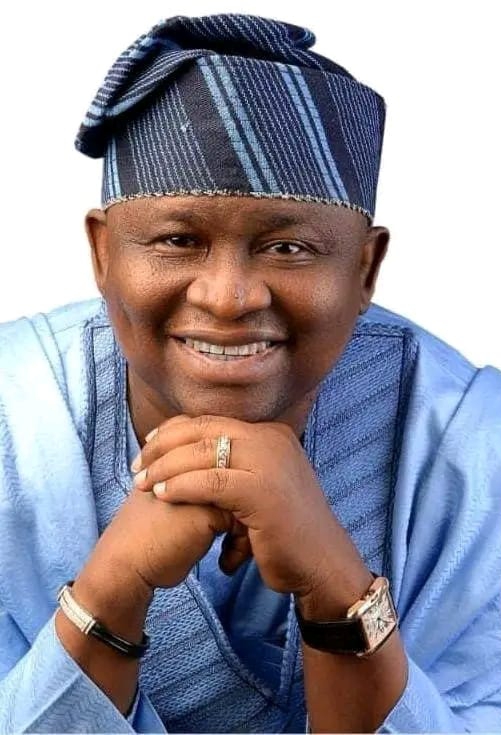
SENATOR ADEOLA YAYI REGISTERS 4000 JAMB CANDIDATES
In continuation of his educational support initiatives and following established tradition, Senator Solomon Adeola (APC,Ogun West) has successfully paid for and enrolled 4000 indigent students for the 2026 Joint Admission Matriculation Board(JAMB) examination.
According to a release e-signed and made available to members of the League of Yewa-Awori Media Practitioners (LOYAMP) by High Chief Kayode Odunaro, Media Adviser to Senator Adeola and shared with (your mediu), the programme financed by the senator under the “SEN YAYI FREE JAMB 2026” ended on Saturday , February 21, 2026, with a total of 4000 candidates successfully enrolled with their PINs provided.
Commenting on the success of the programme, Senator Adeola said the programme is another leg of his personal educational empowerment for indigent but brilliant citizens preparatory to his scholarship and bursary facilitation for tertiary education institutions’ students.
“As far as I can help it, none of our children will miss educational opportunities arising out of adverse economic predicament of their parents or guardians”, he stated.
Successful candidates cut across all the three senatorial districts of Ogun State with 2183 coming from Ogun West, 1358 coming from Ogun Central and 418 from Ogun East.
Some of the candidates that applied and are yet to get their PINs due wrong information supplied in their profiles and being underage as discovered by JAMB and other reasons are being further assisted to see the possibility of getting their PINs.
The Free JAMB programme of the Senator that has been running for years is well received by appreciative beneficiaries and their parents.
Alhaji Suara Adeyemi from Ipokia Local Government whose daughter successfully got her PIN in the programme said the Senator’s gesture was a welcome financial relief for his family at this period after payment of numerous school fees of other siblings of the beneficiary seeking admission to higher institution.
Also posting on the social media handle of the Senator, a beneficiary Mr. Henry Olaitan, from Odeda LGA said that he would have missed doing the entry examination as his guardian cannot afford the fees for himself and two of his children.
society
House Committee Seeks Stronger Financial Backing for Federal Character Commission
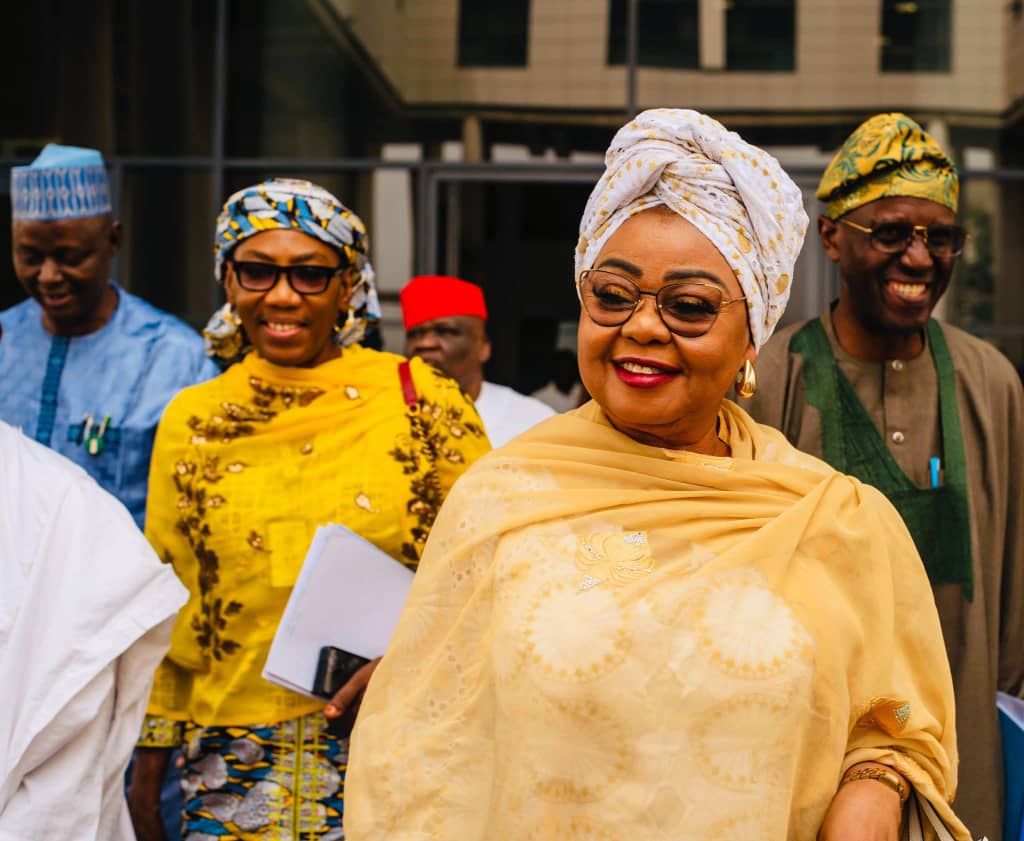
House Committee Seeks Stronger Financial Backing for Federal Character Commission
The Executive Chairman of the Federal Character Commission (FCC), Honorable Hulayat Motunrayo Omidiran, has reassured the commitment of her new leadership to reposition the Commission and strengthen enforcement of the federal character principle, despite prevailing funding challenges.
Hon. Omidiran made this known during the Commission’s budget defence before the House of Representatives Committee on Federal Character at the National Assembly on Friday, February 19, 2026.
The Executive Chairman opened up on inadequate funding has continued to constrain the Commission’s statutory activities, including nationwide monitoring, compliance audits and enforcement measures across Ministries, Departments and Agencies (MDAs).
“We are focused and determined to do the work that the Constitution and the President have entrusted us with,” Omidiran stated.
The FCC Boss, however, assured lawmakers that the Commission remains resolute in ensuring equity, fairness and balanced representation in line with its constitutional mandate.
“As a Commission, it is our responsibility to engage with relevant government parastatals and ministries to secure the necessary funding we require. We believe that with consultation and collaboration, it will be a successful venture for the Commission.”
Earlier, the Chairman of the House Committee on Federal Character, RT. Hon. Ahmed Idris Wase, expressed deep concern over what he described as near-zero budgetary allocation to the Commission, stressing that such financial inadequacies severely undermine its operational effectiveness.
The Plateau State lawmaker assured the Commission of the Committee’s firm legislative backing in advocating for improved funding and strengthening the Commission’s capacity to fully exercise its constitutional mandate.
“We cannot reasonably expect the Federal Character Commission to enforce compliance across Ministries, Departments, and Agencies while grappling with insufficient funding,” Hon. Wase remarked.
“If we are genuinely committed to fairness, equity, and national cohesion, then we must be deliberate in adequately funding the institution established to safeguard these principles.
“As a Committee, we shall work closely with the leadership of the Commission to ensure that its budgetary provisions reflect the magnitude of its mandate. The era of skeletal or token funding must give way to realistic and sustainable financial support,” he concluded.
The budget defence session concluded on a note of renewed collaboration between the House of Representatives and the Commission, reflecting a shared determination to strengthen institutional capacity, enhance accountability, and promote equitable representation within Nigeria’s public service.
SIGNED:
Ademola Lawrence
Spokesperson,
Federal Character Commission
February 20, 2026
-

 celebrity radar - gossips6 months ago
celebrity radar - gossips6 months agoWhy Babangida’s Hilltop Home Became Nigeria’s Political “Mecca”
-

 society6 months ago
society6 months agoPower is a Loan, Not a Possession: The Sacred Duty of Planting People
-

 society5 months ago
society5 months agoReligion: Africa’s Oldest Weapon of Enslavement and the Forgotten Truth
-

 news6 months ago
news6 months agoTHE APPOINTMENT OF WASIU AYINDE BY THE FEDERAL GOVERNMENT AS AN AMBASSADOR SOUNDS EMBARRASSING

